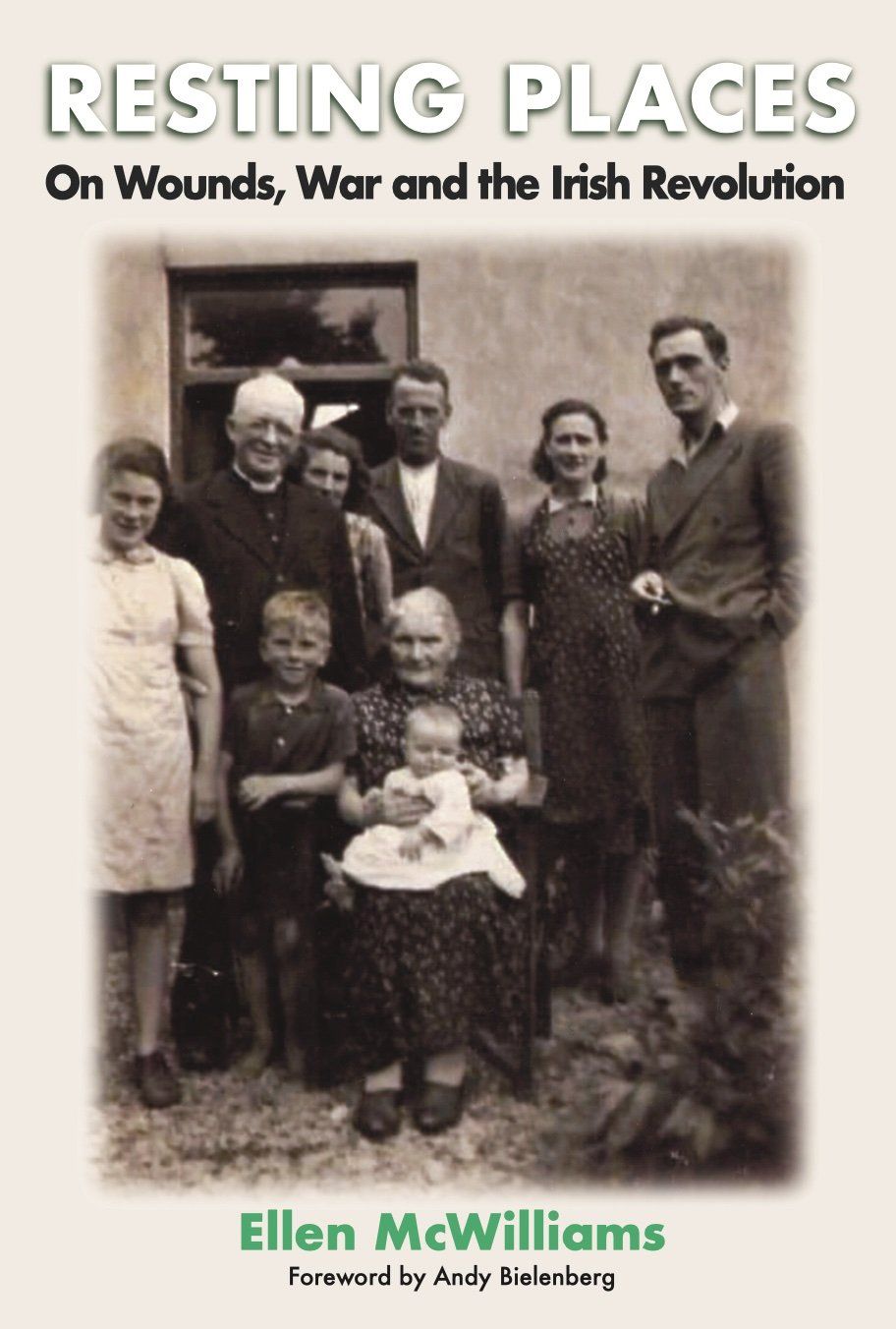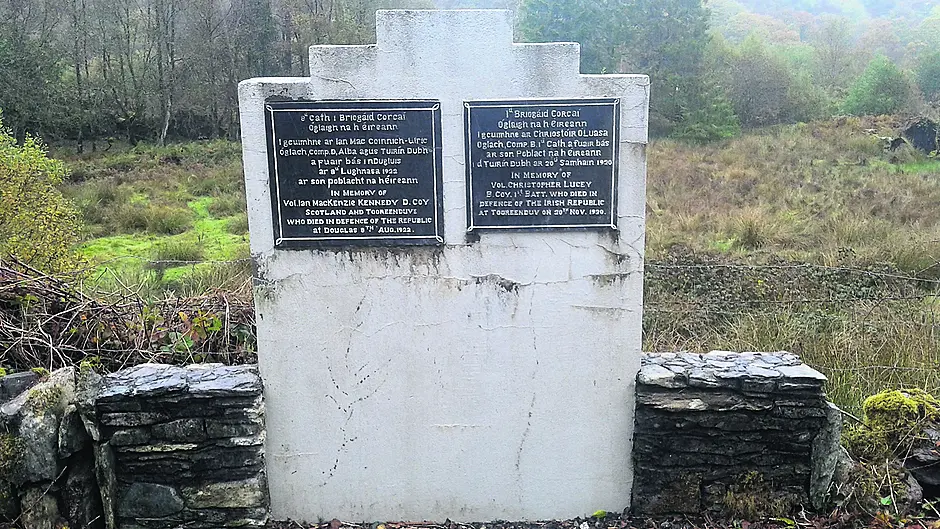COLUM CRONIN delves into a new book which shines a light on the Dunmanway massacre of 1922, and Thomas Bradfield's killing, written by a woman raised in Bradfield's home
RESTING Places: On Wounds, War And The Irish Revolution, which delves into many controversial events in our past, has been written by a local author, making it even more intriguing.
Originally from Desertserges, Enniskeane, with the maiden name of McCarthy, Ellen McWilliams is a UK-based academic, lecturing in the department of English at Exeter University.
Writing in the first person about the atrocities that befell descendants of her community during the Troubles, one is immediately struck by the deeply personal connection Ellen has with her home and its history, her community’s history and, as a Catholic, her close relations with her Protestant neighbours.
Ellen makes many references to the house in which she was born and raised in Knockmacool. This was originally the home of Thomas Bradfield who was shot by the IRA on February 1st 1921.
‘I know the four corners of the sitting room Thomas Bradfield was captured from, when he revealed too much of what he knew – so the eyewitness accounts tell us – and was marched across the fields to face execution for being an informer,’ she writes.
‘The marble fireplace remains in place, presumably because the looters could not uproot it. It is a beautiful and striking object that is the last memory of the trace history.’
In another chapter, she writes that ‘on my next visit home I will light another candle in his memory in the sitting room of the house that was once his room. I will think again of his widow and his daughter and the grandchildren he never had the chance to know’.
Ellen adds: ‘It’s very unnerving to read about the house you grew up in, in the history books.’
McWilliams comes from generations of Irish Republicans. Her great grandmother was an active member of Cumann na mBan and her granduncle was a member of the IRA.
Now she is married to an English Protestant, also an academic. Perhaps it is this fascinating union of contrasting cultures which makes Ellen’s writing so fresh and absorbing.
‘I am happy to reveal many things about myself – warts and all – but have tried to write with particular care where my own story touches on the lives of other people in the place where I grew up in, out of respect for the living as well as the dead,’ she explains.
Ellen writes warmly about people and places in her locality, such as Kilcolman National School ‘at the four cross roads’; the ‘man who ran the store up the road next to the creamery’; the graveyard and Catholic Church at Ahiohill, Desertserges Church of Ireland School and St Mary’s Church of Ireland chapel.
‘There was maybe nothing so unusual about the questions I carried around in my pocket. Why were there two small churches, two small schools, one for Catholics and one for Protestants, in such close proximity, when surely one might have housed us all?’ she wondered.
The foreword has been contributed by Dr Andy Bielenberg of UCC, with a historical overview which usefully contextualises the time period (1919-1923).
Ellen says: ‘This book is not just about historical events but the legacy of fear that they created – in spite of the extraordinary grace and care with which this community found ways of surviving and rebuilding.’
The author has tackled tragic events fearlessly, with passion, empathy and courage, creating the potential for understanding, healing and forgiveness across cultural and religious divides.
‘History cannot be undone and we are left, if we are lucky, with some broken prayer that puts ointment on the wound in hope of healing.’
Ellen says that any author royalties the book earns will be donated to the organisation Relatives for Justice (Belfast) for its work with victims and survivors.
 Ellen McWilliams' book chronicles a difficult time in our history in West Cork.
Ellen McWilliams' book chronicles a difficult time in our history in West Cork.









